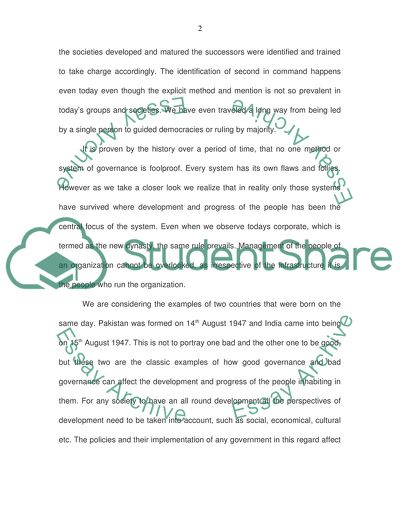Cite this document
(Good Governance and Its Importance for the Development of People Research Paper, n.d.)
Good Governance and Its Importance for the Development of People Research Paper. Retrieved from https://studentshare.org/history/1723507-good-governance-and-its-importance-for-the-development-of-people
Good Governance and Its Importance for the Development of People Research Paper. Retrieved from https://studentshare.org/history/1723507-good-governance-and-its-importance-for-the-development-of-people
(Good Governance and Its Importance for the Development of People Research Paper)
Good Governance and Its Importance for the Development of People Research Paper. https://studentshare.org/history/1723507-good-governance-and-its-importance-for-the-development-of-people.
Good Governance and Its Importance for the Development of People Research Paper. https://studentshare.org/history/1723507-good-governance-and-its-importance-for-the-development-of-people.
“Good Governance and Its Importance for the Development of People Research Paper”, n.d. https://studentshare.org/history/1723507-good-governance-and-its-importance-for-the-development-of-people.


